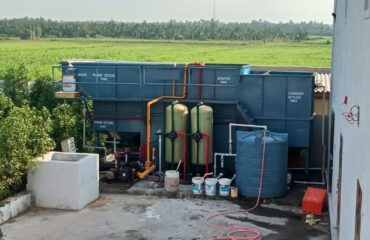Effluent Treatment Plants (ETPs) have become a crucial part of Mumbai’s urban infrastructure, addressing the challenge of wastewater management in a rapidly growing city. This article delves into the significance of Effluent Treatment Plants in Mumbai, their role in protecting the marine ecosystem, and their contribution to a more sustainable future.
ETPs: Navigating Urban Challenges
Mumbai, often referred to as the financial capital of India, boasts a bustling urban landscape and diverse industries. However, rapid urbanization and industrialization have led to a surge in industrial wastewater generation. ETPs in Mumbai play a pivotal role in treating this wastewater, ensuring that pollutants are removed before the water is released into the Arabian Sea.
Operational Mechanisms
Effluent Treatment Plants in Mumbai employ a combination of physical, chemical, and biological processes to effectively purify wastewater. The primary treatment phase involves the removal of larger solids, followed by secondary treatment that utilizes microorganisms to degrade organic matter. Tertiary treatment further enhances water quality, making it suitable for safe discharge or potential reuse.
Addressing Marine Pollution
Mumbai’s proximity to the Arabian Sea highlights the critical need for proper wastewater treatment. ETPs play a crucial role in preventing marine pollution by treating industrial wastewater before it enters the ocean. This protection of marine life and coastal ecosystems contributes significantly to the overall health of the environment.
Overcoming Urban Challenges
ETPs in Mumbai face unique challenges such as fluctuating pollutant levels and the need for optimal efficiency. To overcome these challenges, ETPs are adopting innovative solutions like advanced filtration systems, real-time monitoring, and process optimization, ensuring effective wastewater treatment.
Government Collaboration and Regulations
The Mumbai administration recognizes the vital role of ETPs in maintaining a sustainable environment. Stringent regulations guide industries to comply with wastewater treatment standards. This collaboration between industries and regulatory bodies underscores the city’s commitment to responsible growth.
Advantages of ETPs
Effluent Treatment Plants offer a multitude of benefits to Mumbai’s ecosystem. By preventing marine pollution, they protect aquatic life and the overall health of coastal waters. Moreover, ETPs contribute to resource recovery, reducing the strain on raw materials and promoting a circular economy.
Paving the Way to a Sustainable Future
The future of Effluent Treatment Plants in Mumbai is promising. Technological advancements will lead to higher automation and efficiency. The integration of artificial intelligence and data analytics will optimize treatment processes, ensuring even higher compliance with environmental norms.
Conclusion
Effluent Treatment Plants in Mumbai are instrumental in safeguarding the marine ecosystem and promoting sustainable development. By treating industrial wastewater effectively, these plants contribute significantly to Mumbai’s journey towards a cleaner and healthier environment. The harmony between urban growth and environmental preservation is achieved through the dedicated efforts of Effluent Treatment Plants.





